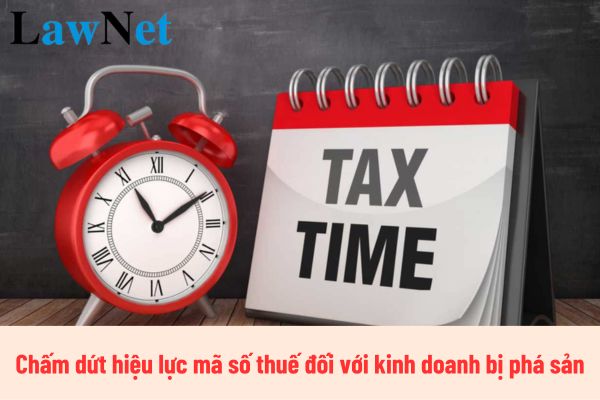Shall the TIN be deactivated due to bankrupcy in Vietnam?
Shall the TIN be deactivated due to bankrupcy in Vietnam?
Pursuant to Article 39 of the Law on Tax Administration 2019 which provides for the deactivation of the TIN as follows:
Deactivation of TIN
1. Taxpayers who are registered along with business registration, cooperative registration, or business registration shall have their TIN deactivated under the following circumstances:
a) deactivation of business activities, or in cases of dissolution or bankruptcy;
b) Revocation of the business registration certificate, cooperative registration certificate, business registration certificate;
c) Division, merger, or consolidation.
2. Taxpayers registered directly with the tax authority shall have their TIN deactivated under the following circumstances:
a) deactivation of business activities, with no tax obligations remaining for non-business organizations;
b) Revocation of the business registration certificate or equivalent license;
c) Division, merger, or consolidation;
d) Notification by the tax authority that the taxpayer is no longer operating at the registered address;
đ) Cases where individuals are deceased, missing, or have lost civil act capacity as prescribed by law;
e) Foreign contractors upon contract completion;
g) Oil and gas contractors, investors when the contract ends or upon transferring all rights in the oil and gas contract.
...
In light of the above regulations, the TIN for business activities declared bankrupt shall be deactivated.

Shall the TIN be deactivated due to bankrupcy in Vietnam? (Image from Internet)
What obligations shall taxpayers fulfill before the TIN deactivation in Vietnam?
Pursuant to Clause 1, Article 15 of Circular 105/2020/TT-BTC, the obligations that must be fulfilled prior to the deactivation of the taxpayer’s identification number are as follows:
Obligations that Taxpayers Must Fulfill Before TIN deactivation
1. For taxpayers as prescribed at Points a, b, c, d, đ, e, g, h, m, n, Clause 2, Article 4 of this Circular:
- Taxpayers must submit a report on the use of invoices in accordance with legal regulations on invoices;
- Taxpayers must complete the filing of tax declarations, tax payments, and handle overpaid taxes, undeclared input VAT, if any, in accordance with Articles 43, 44, 47, 60, 67, 68, 70, 71 of the Law on Tax Administration with the tax management agency;
- In cases where the principal organization has dependent units, all dependent units must complete the procedures for TIN deactivation before the principal organization's number is deactivated.
2. For business households and individuals as prescribed at Point i, Clause 2, Article 4 of this Circular:
- Taxpayers must submit a report on the use of invoices in accordance with legal regulations on invoices if invoices are used;
Therefore, prior to TIN deactivation, taxpayers must fulfill the following obligations:
- Taxpayers must submit a report on the use of invoices as stipulated by law.
- Taxpayers must complete tax filing, tax payment, and handle any overpaid taxes or undeclared input VAT according to regulations.
- If a principal organization has dependent units, all dependent units must complete TIN deactivation procedures before the principal organization does.
In addition, for business households transitioning to small and medium enterprises, such households must complete tax obligations with the directly managing tax authority or provide written confirmation to the tax authority from the small and medium enterprise affirming that it will inherit all the tax obligations of the business household as per regulations supporting small and medium-sized enterprises.
What are the principles for TIN deactivation in Vietnam?
Based on regulations in Clause 3, Article 39 of the Law on Tax Administration 2019, the principles for TIN deactivation are as follows:
- The TIN cannot be used in economic transactions from the date the tax authority announces its deactivation.
- The deactivated TIN of an organization cannot be reused, except for cases stipulated in Article 40 of this Law.
- For business households, individual businesses upon deactivation, the TIN of the representative of the business household is not deactivated and is used to fulfill other tax obligations of that individual.
- When an enterprise, economic organization, other organization, or individual ceases the TIN, they must simultaneously deactivate any TINs used on their behalf.
- Taxpayers that are principal organizations deactivating their identification number must have their dependent units' TINs deactivated as well.

